The Disability Technology report explores the potential for data-driven digital technologies to reduce barriers that disabled people encounter in their everyday lives. Whether for work, play, rest or care, inclusively designed, sustainable digital assistive technologies can create a more accessible society for all.
All Resources
Showing 101 - 110 of 442
Results are ordered by date, with most recent published resources shown first.
Use the other filters to customize your search.
Results are ordered by date, with most recent published resources shown first.
Use the other filters to customize your search.
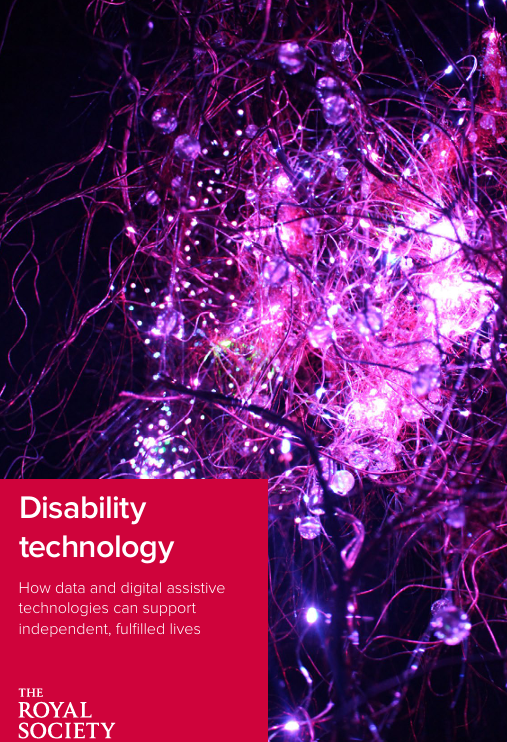
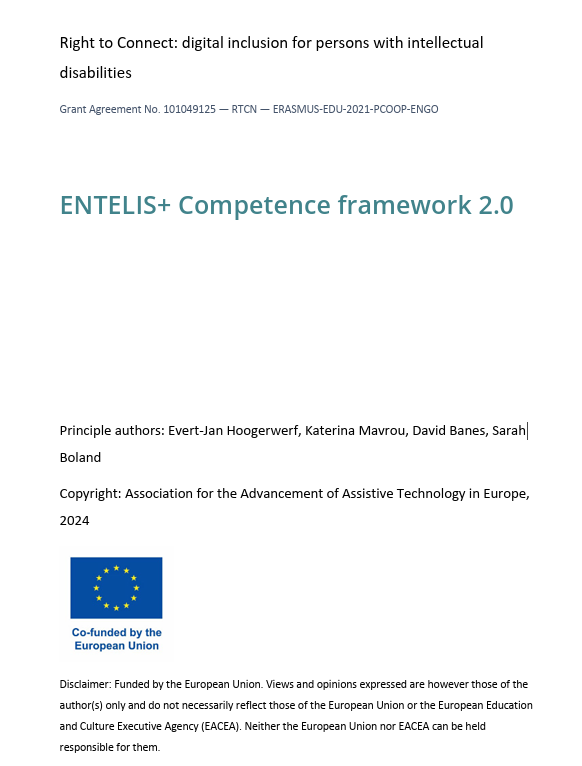
A competence framework for trainers supporting the digital inclusion of persons with disabilities and older citizens.
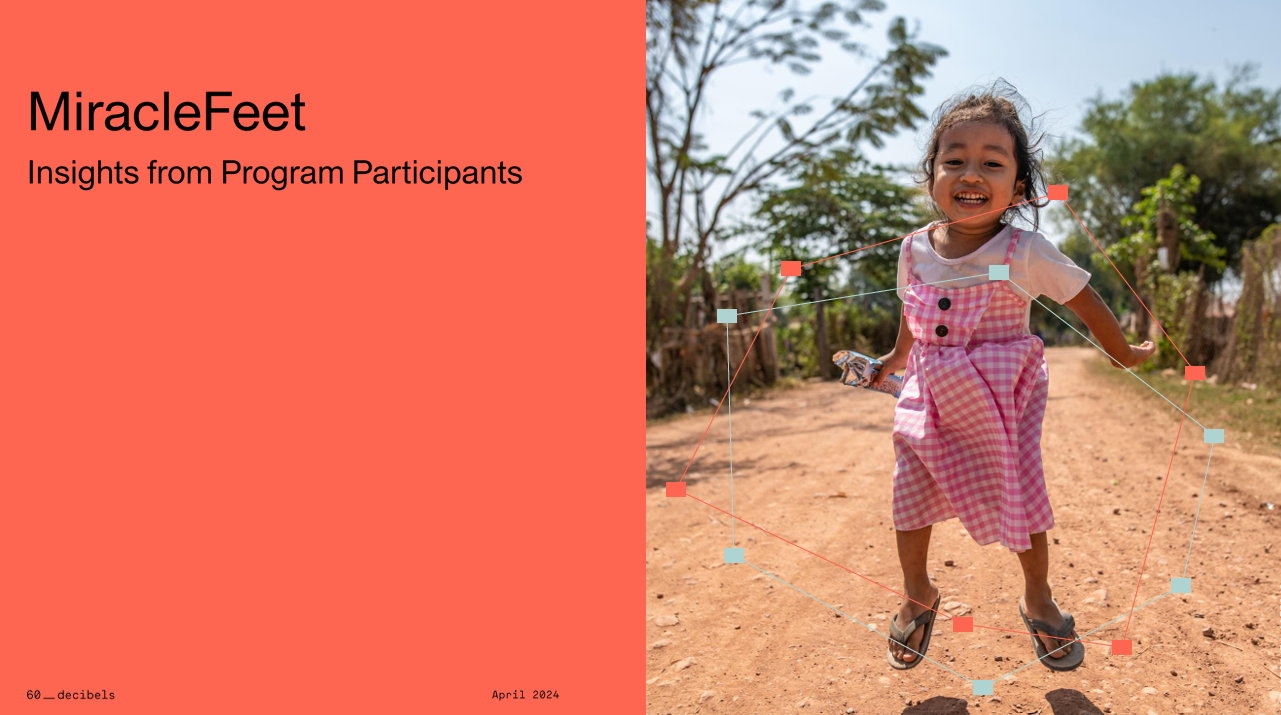
This report presents the results from a survey of 676 program participants who were treated in 46 MiracleFeet supported hospitals and clinics in Tanzania and Sri Lanka. The program implemented the Ponseti method to manage congenital talipes equino varue (CTEV).
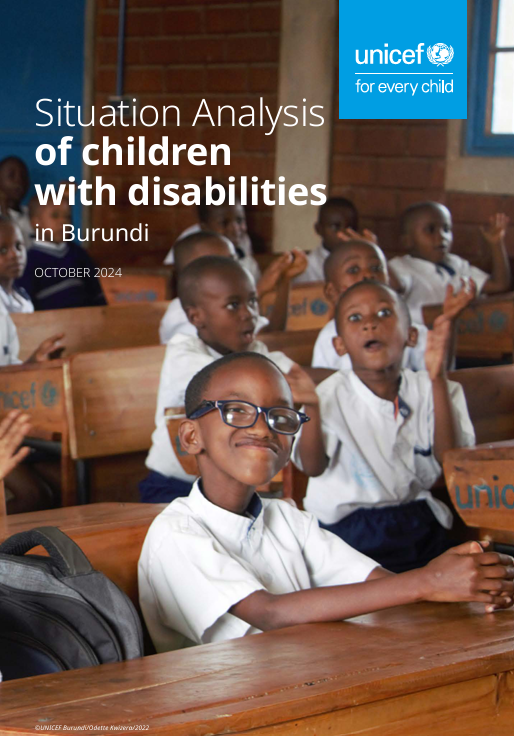
This document was developed by UNICEF to collect and compile information on the situation of children with disabilities in Burundi, with the aim of promoting their rights and well- being. It aims to analyze the challenges these children face, identify barriers to their social inclusion, and propose recommendations to improve their access to basic social services.
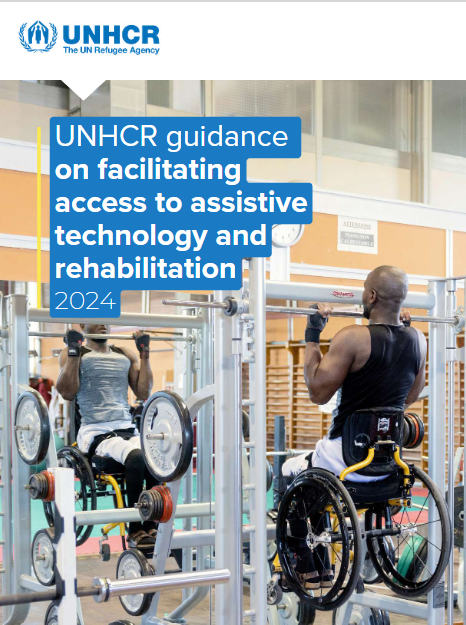
This guidance is intended to be used by UNHCR personnel and partners including other UN agencies, governmental counterparts, and non-governmental humanitarian actors. It is meant to help them
prioritise the provision of assistive technology and rehabilitation services based on evidence to maximise the impact of limited resources in the settings where…
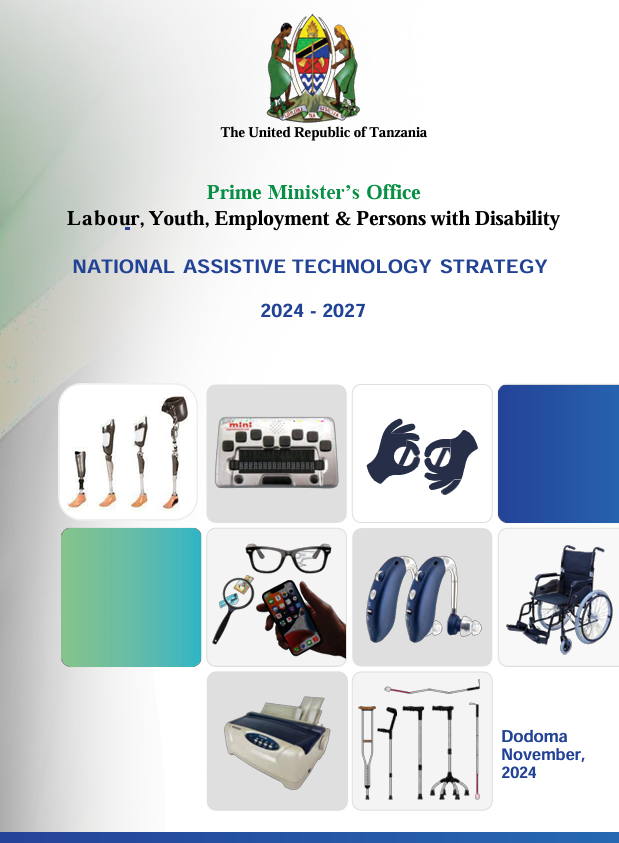
The development of the National Assistive Technology (AT) Strategy (NATS) is consistent with the Government’s commitment to prioritize disability-inclusive development in line with the Tanzania Development Vision 2025 (TDV 2025) and the Draft National Vision 2050.
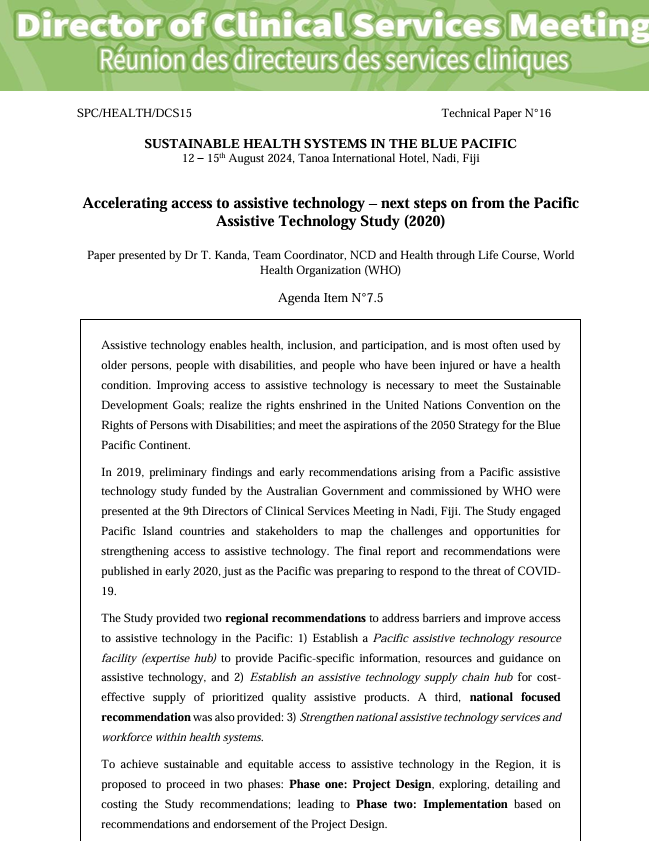
Regional technical paper on improving AT access across multiple functional domains in the Pacific.
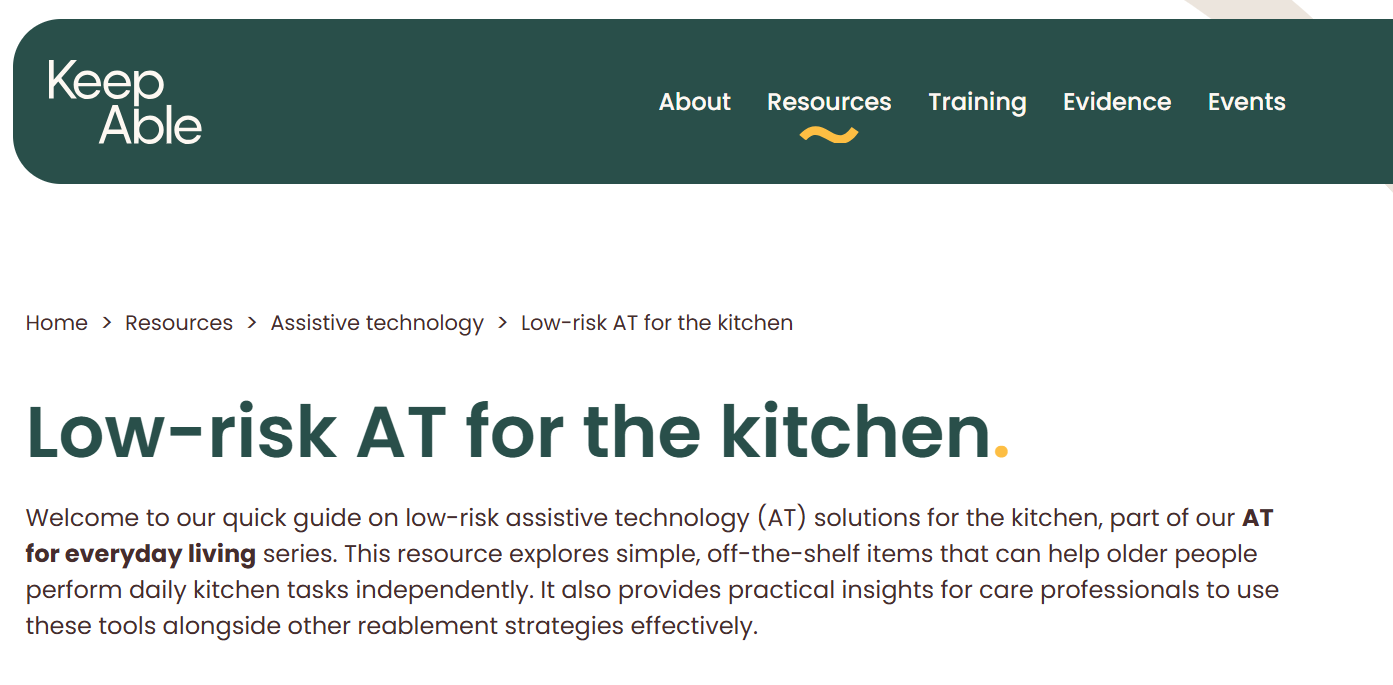
Welcome to our quick guide on low-risk assistive technology (AT) solutions for the kitchen, part of our AT for everyday living series. This resource explores simple, off-the-shelf items that can help older people perform daily kitchen tasks independently. It also provides practical insights for care professionals to use these tools alongside other reablement…
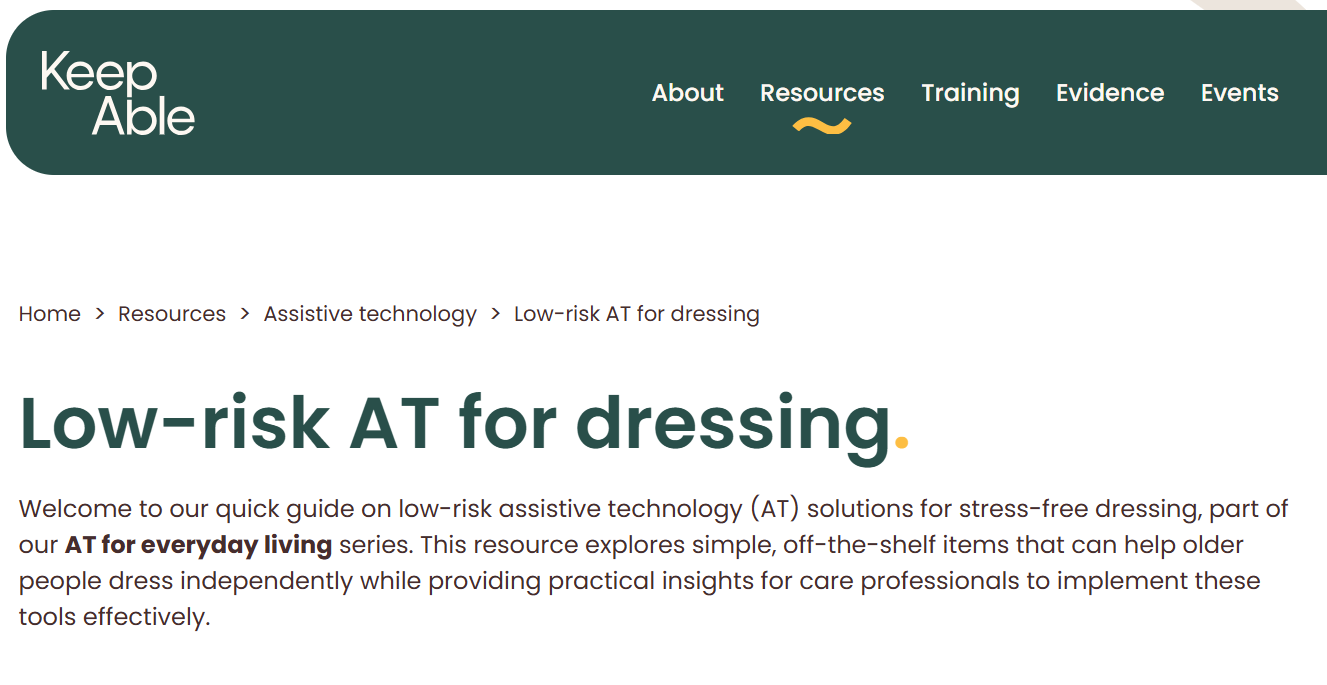
Welcome to our quick guide on low-risk assistive technology (AT) solutions for stress-free dressing, part of our AT for everyday living series. This resource explores simple, off-the-shelf items that can help older people dress independently while providing practical insights for care professionals to implement these tools effectively.
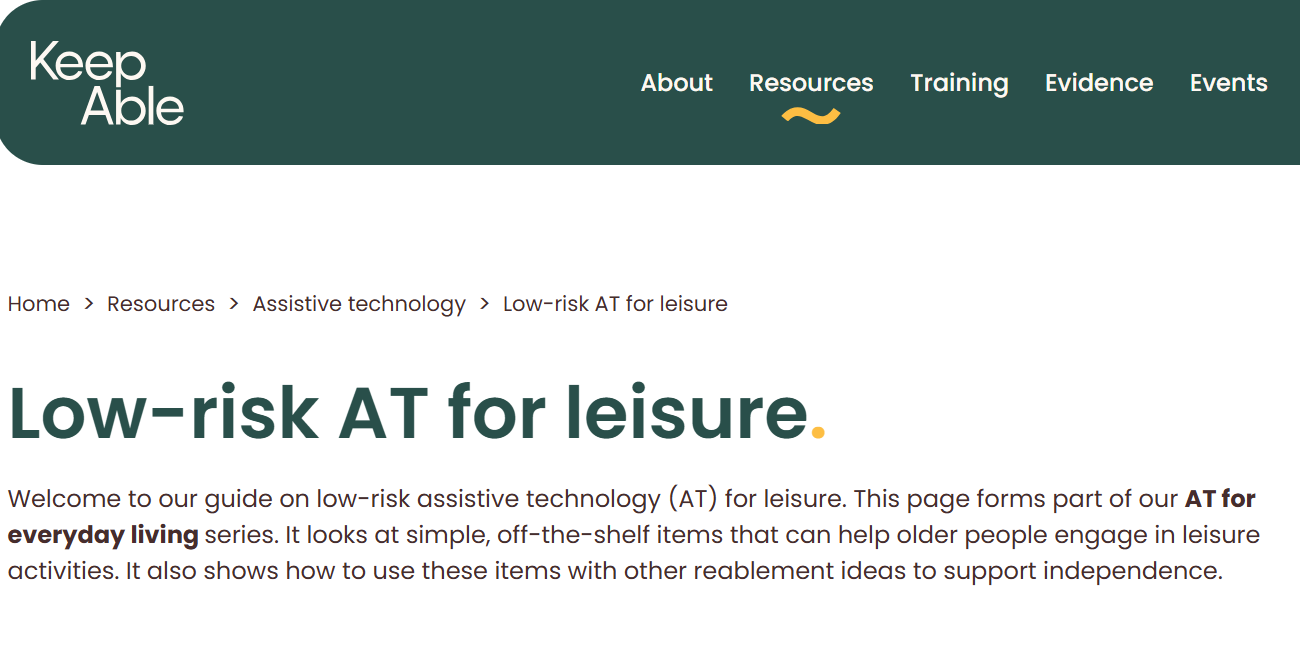
Welcome to our guide on low-risk assistive technology (AT) for leisure. This page forms part of our AT for everyday living series. It looks at simple, off-the-shelf items that can help older people engage in leisure activities. It also shows how to use these items with other reablement ideas to support independence.
